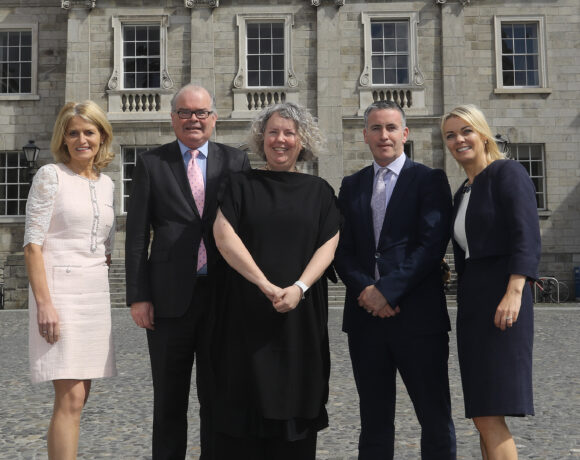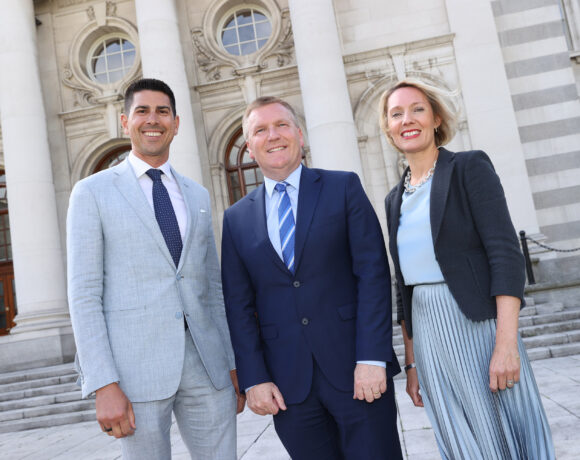The latest PMI survey, from S&P Global, shows that business activity in Dublin experienced a sharp and accelerated increase in Q1 as the COVID-19 Omicron wave faded. The headline rate increased to 60.1, from 59.4 in Q4, marking four successive quarters of growth. Activity strengthened across all three monitored sectors, led by construction. Output across the rest of Ireland also increased but at a weaker pace than that seen in Dublin.
On the employment side, the removal of the majority of the COVID-19 restrictions helped to encourage companies to expand their staffing levels in Q1 with the pace of growth quickening to its fastest level since 2018. This supports anecdotal evidence that recruitment became more difficult at the beginning of the year. Employment also increased across the rest of Ireland, but at a slower pace.
The forward looking New Orders measure also accelerated in the quarter which saw new business completing a full year of growth on a quarterly basis. New orders outside Dublin, while also showing a marked increase, were much softer than in the Capital. While these consistent new order trends signal the potential for strong activity for the remainder of the year, supply constraints pose a real threat.
Business activity in Dublin and across Ireland continued to increase in the first quarter of the year as the Omicron wave subsided. Although the passing of the Omicron wave brings renewed optimism, constraints surrounding the fallout from the Russian invasion of Ukraine which is exacerbating existing inflationary pressures, pose real threats to potential growth for the remainder of the year.
Commenting on the PMI, Andrew Harker, Economics Director at S&P Global said, “the fading of the Omicron wave of the COVID-19 pandemic helped to boost growth in Dublin in the opening quarter of 2022, with the capital outpacing the Rest of Ireland. Reduced concerns around the pandemic were especially good news for workers, as firms in Dublin took on additional staff at the fastest pace in three-and-a-half years. The next headwind, however, comes from the impacts of the Russian invasion of Ukraine, with intensifying cost pressures in particular having the potential to limit growth in the second quarter.”
Source: Dublin City Council













